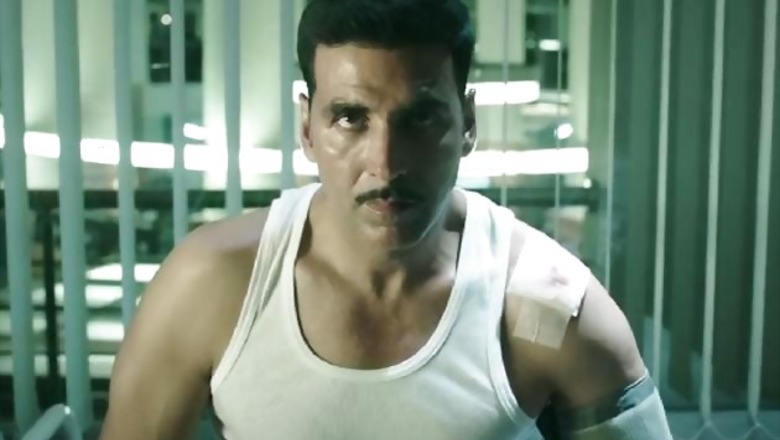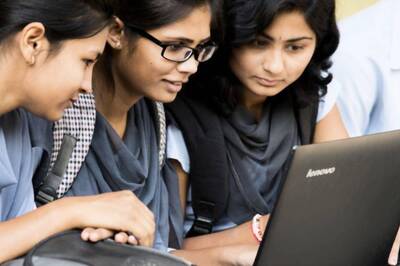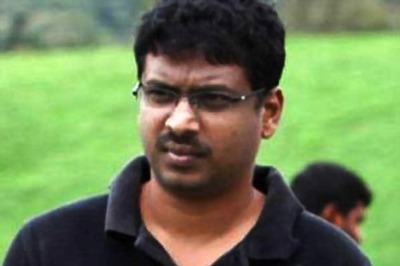
views
Mumbai: Neeraj Pandey's two directorial ventures so far -- 'A Wednesday' and 'Special Chabbis' -- displayed his ability to take the language of Hindi commercial cinema into unexpected territory. He says his new film 'Baby', on terrorism, is his effort to create awareness about the existing danger to peace.
In an interview, Pandey spoke about 'Baby' and the dynamics of making films on sensitive subjects.
Excerpts:
Q. "Baby" is about international terrorism. Post the ghastly terror attack in Peshawar, do you feel cinema must become more responsible in its projection of the issue?
A. Speaking for myself, I'd like to believe I'm a responsible filmmaker. I don't have solutions. But I hope to create a renewed awareness about the situation. Any filmmaker who talks sense should be taken seriously.
Q. Your trailer tells us that "Baby" is about the efforts of a covert Indian intelligence team to nab an international terrorist?
A. The trailer had to tell us the film's DNA. We wanted to be very clear on this.
Q. You've cast actors who belong to the country of the characters' origins?
A. Yes, and that was not easy to do. Communication was difficult. What would otherwise have taken a couple of days took much longer. But having a competent casting director Vicky Sidana on board was a big help. He kept following up on all the actors from whichever country we wanted.
Q. You also shot in many foreign countries, which you haven't done before?
A. Well, I like to travel. So it isn't as if I'm not familiar with international locations. But travelling with a film crew is something else. The film needed to be shot in various countries. So we travelled to Delhi, then Nepal, Turkey and Abu Dhabi to shoot. The conditions were different at each location. But it was a great deal of fun and big challenge.
Q. You've cast a Pakistani actor as a terror mastermind. Isn't that a clear indication of where the terror hub is?
A. Terror is prevalent everywhere in the subcontinent. Let's not fool ourselves into believing it's not present in India. Just the other day we had another terror attack in Bangalore. I chose the Pakistani actor Rasheed Naaz to play the main terrorist because I wanted someone with an oratorial skill, who could sway audiences into hatred and violence. There are two villains in the film -- an Indian played by Kay Kay Menon and a Pakistani played by Rasheed Naaz. I wanted a particular accent in the speech in my Pakistani villain.
Q. Your earlier films generated curiosity but they didn't create the widespread interest that "Baby" has. Does that make you nervous?
A. Not at all. When we cut our trailer and put it out, we wanted to generate interest and curiosity. And I think we managed that. We understood that it wouldn't happen with "A Wednesday" because I was new and the trade didn't trust my ability to generate revenues. We had cut a very interesting trailer for "A Wednesday" as well. But at that time I was not equipped to put my idea into a perspective.
Q. When you came to your second film, you were much better placed in the film mart?
A. It was slightly better during "Special Chabbis". Budget-wise, and in terms of scale and scope my two earlier films were smaller. I feel the scale of a film must match the plot. I took 'baby' steps to get to my new film from where I started in "A Wednesday".
Q. There is the danger of a big film like "Baby" being perceived by the audience as a documentation of real life terror-politics. That would limit the viewership?
A. But "Baby" is an authentic take on a very real and disturbing danger to global peace. There's no room for flights of fancy here. It's set in a real incident. The purpose of the film is to recreate a specific real life situation. We can't control the take-outs from the plot. It's up to the audience to carry home what they like. We have a very real story to tell. How it is perceived is not in our control.


















Comments
0 comment